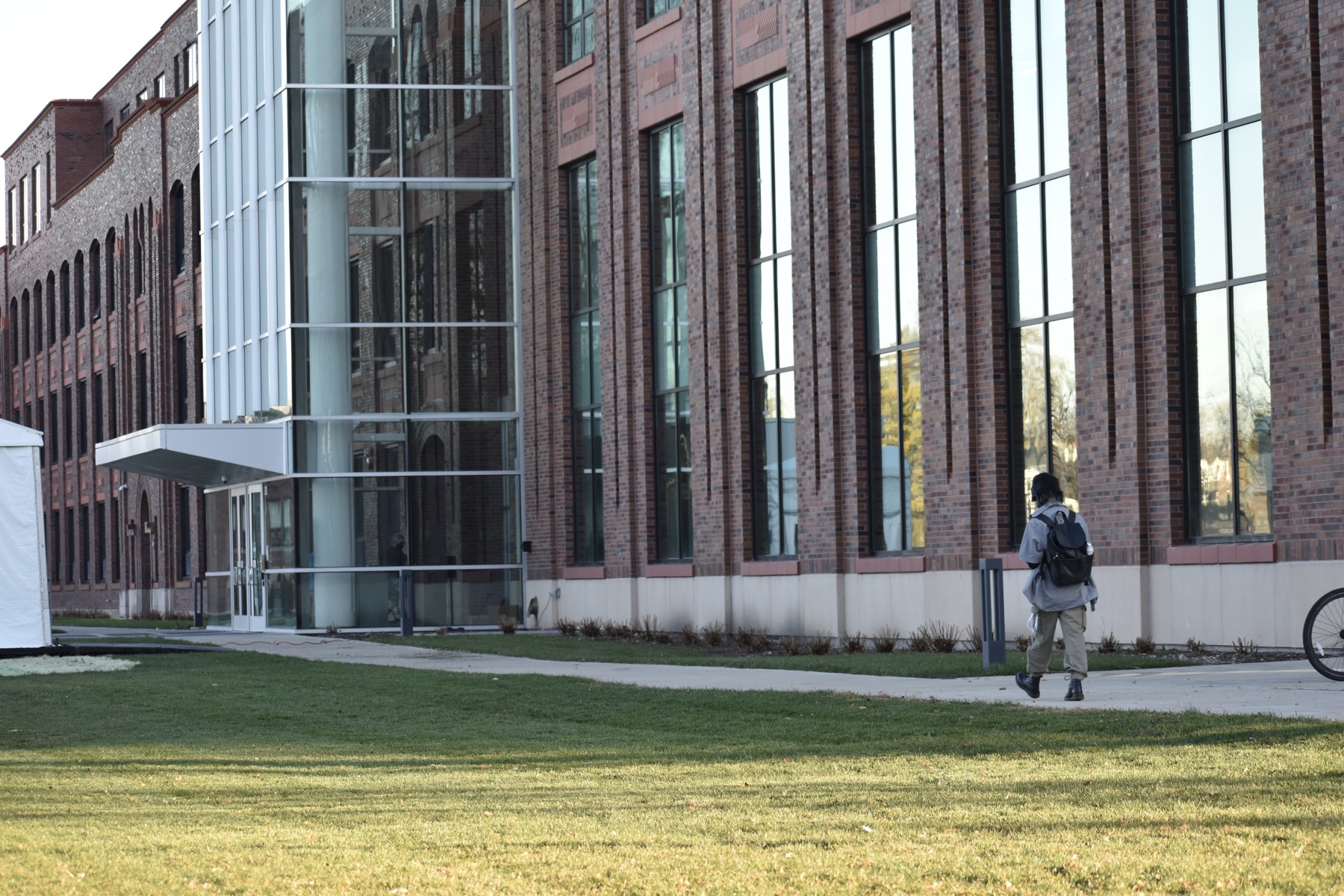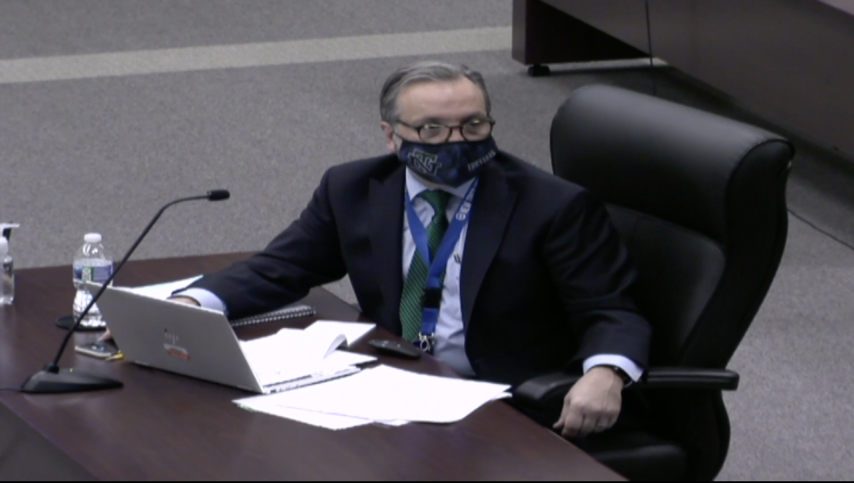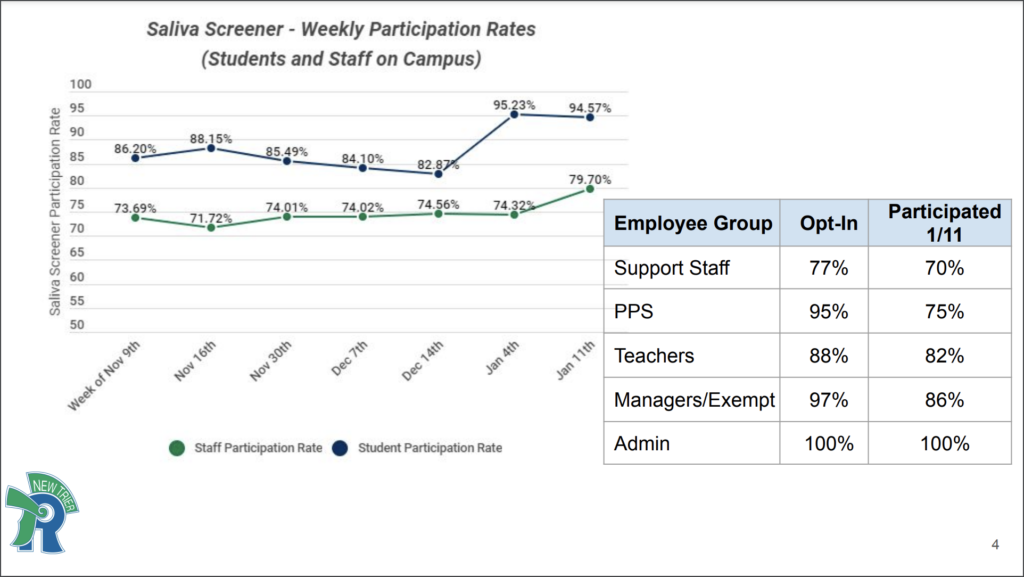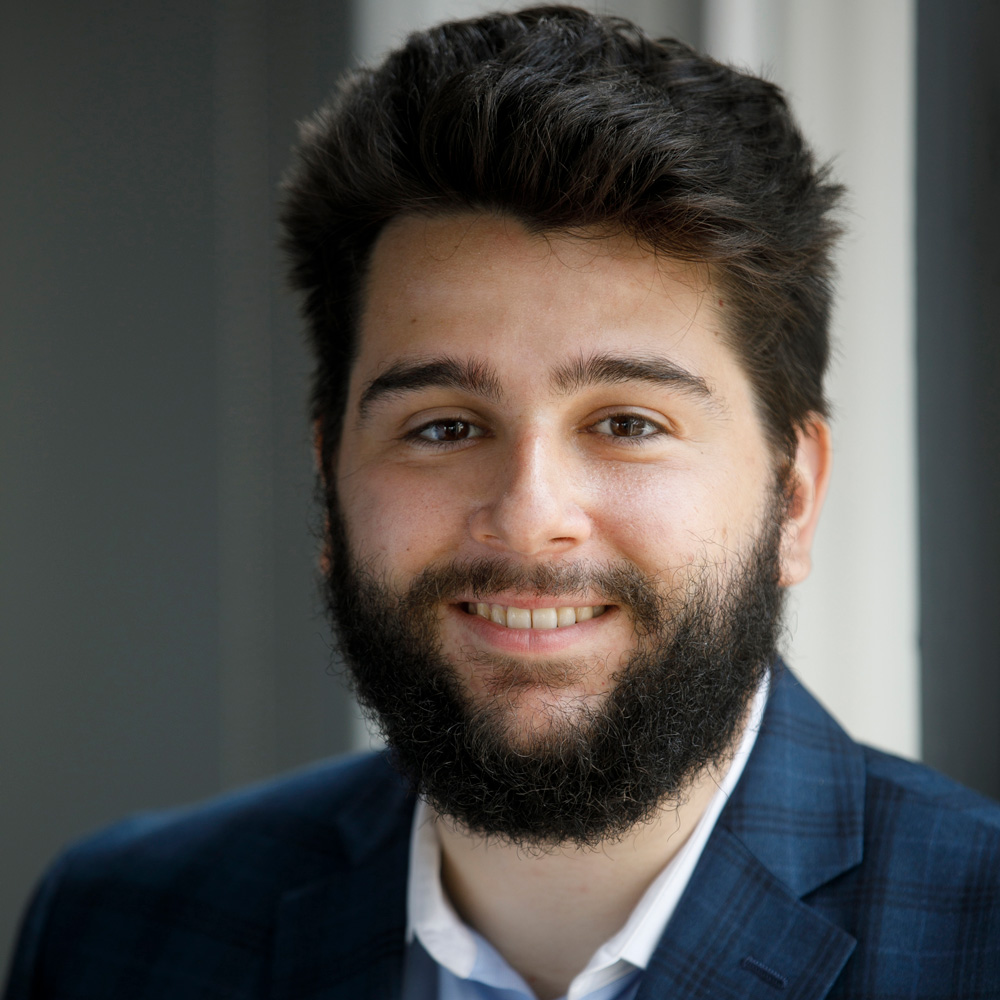
New Trier will not issue failing grades this school year
In an effort to “support students and mitigate the long-term impact of pandemic grades on students,” New Trier High School will not be issuing failing grades this school year.
School officials delivered New Trier’s perspective on a nationwide debate and expressed their desire to not deliver failing marks during the district’s board meeting Tuesday, Jan. 19.
Peter Tragos, assistant superintendent for curriculum and instruction, outlined in district documents four principles that led to the decision: “to ensure students have every opportunity to complete their courses; maintain pace to an on-time graduation; fill learning gaps through targeted interventions and credit recovery options; and give students hope that their future has not been dashed.”
Instead of issuing a D, F or an “incomplete,” New Trier educators will have three options, Tragos said.
Educators can issue an A through C-, a “pass” grade, or what the district calls a “credit pending” grade.
Tragos said credit pending is a new transcript notation that is a “highly individualized and collaborative approach.” He added the decision is about any individual grade for any individual student and there should be no surprises when the notation is issued because it’s something worked upon between the invested parties.
The credit pending notation is not a rebranding of the previous “incomplete” grade option, Tragos said, adding that in some cases students might be able to progress to the next course in the next semester.
The grade is temporary and needs to be converted to a letter grade, a pass or a no credit, officials said.
“While this was a national dilemma, we have a local solution for it,” Tragos said.

Sally and board members applauded school officials for their work in presenting a solution — and a “sign of hope” — for students who may be struggling academically in this “really difficult time.”
“I think that the goals here are really great and I think that these solutions are good but some of the creativity of how we’re supporting these students in second semester so that they don’t get a year behind is excellent,” he said. ” … I think we’re making really good progress to support those students.”
As New Trier puts ‘tough semester’ behind, optimism abounds
With two significant changes to the district’s learning operations set for next week, New Trier High School officials are pleased to put the challenges of the first half of the school year behind them.
Superintendent Dr. Paul Sally updated the board of education Tuesday, Jan. 19, on a series of upcoming learning alterations, including the end of the first semester and the transition to welcoming two tracks of in-person learners (up to 50 percent capacity) daily.
The modifications will be another step forward in the district’s reopening ladder after remaining in the 25-percent hybrid phase for several months.
“It’s actually really exciting to be through the first semester,” Sally said. “It’s been a tough semester for everybody and I think we are seeing a lot of really great signs as we move forward in our planning. Great signs for the school, for the community, and I really think a coming together of getting back to school and the relationships that we know.”
The two-track model is scheduled to begin Tuesday, Jan. 26, the same day as the school begins its second semester.
Administrators reaffirmed the confidence they expressed last week during a committee of the whole meeting in welcoming more students on campus.
“We’re looking forward to having more students in the building,” Sally said. “It’s going to be a better experience. … Our goal is to just keep making the student experience better and better throughout the second semester and get more and more students, as many as we can safely.”
Additionally, Gov. J.B. Pritzker’s announcement that New Trier Township and all of Region 10 will shift to Tier 2 mitigations allows for the return of youth and high school sports.
Staff unions, school officials could meet to work toward 100 percent participation in screener program
As school officials continue to push toward mandated participation in the district’s COVID-19 screener program for staff members, a meeting between the two sides could soon happen.
Board member Greg Robitaille said it’s “head-scratching” that staff participation levels are not consistently higher and he asked if a meeting between the parties to work through details could be set up.
Board president Cathleen Albrecht agreed.
“This saliva screening just helps everyone,” she said. “It helps the school, it helps the community, it helps individual families and it helps everyone taking it.”
Sally called the informal proposal “a really good idea” and said he will work with the associations to set up a time for the meeting.
“I think the collaboration that we have had with the associations has been really strong and I really appreciate their efforts to help move this forward, so I want to make sure to say that. But … closing communication hoops makes sense to me, so I will reach out to the association leaders and get something scheduled.”
According to updated data presented by Sally at the meeting, staff participation the week of Jan. 11 was 79.7 percent — the highest point since the program’s inception in November.
Broken down by employee group, participation rates are as follows: support staff — 70 percent; PPS —75 percent; teachers — 82 percent; managers — 86 percent; administrators — 100 percent.

Despite a recent mandate requiring participation in the screener program for students learning in-person, the district has yet to see 100 percent participation.
Sally also updated board members on the progress of the district’s saliva-based screening program at the student level, presenting data that shows participation dipped from 95.2 percent the week of Jan. 4 to 94.5 the week of Jan. 11.
Vaccine update
Officials are “continuing to be optimistic” regarding the possibility of New Trier’s Northfield campus serving as a distribution center for a COVID-19 vaccine, Sally said.
He added that there aren’t substantial updates to report right now but that the district is “getting into some details” with its municipalities and Cook County.
Sally also highlighted the two hurdles of vaccine quantities and distribution channels but said he has confidence strong distribution channels will be in place when educators are eligible to receive the vaccine in Phase 1B of the state’s plan.
“We’re looking for more guidance from the county in terms of the site we might be able to set up,” Sally said.

Martin Carlino
Martin Carlino is a co-founder and the senior editor who assigns and edits The Record stories, while also bylining articles every week. Martin is an experienced and award-winning education reporter who was the editor of The Northbrook Tower.


